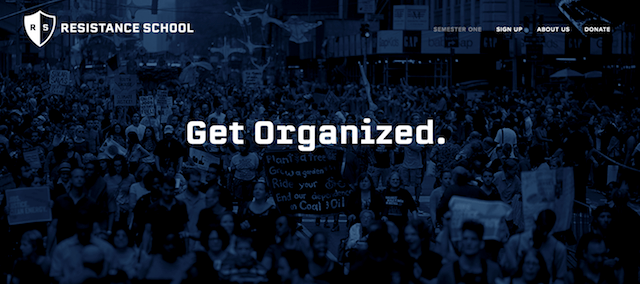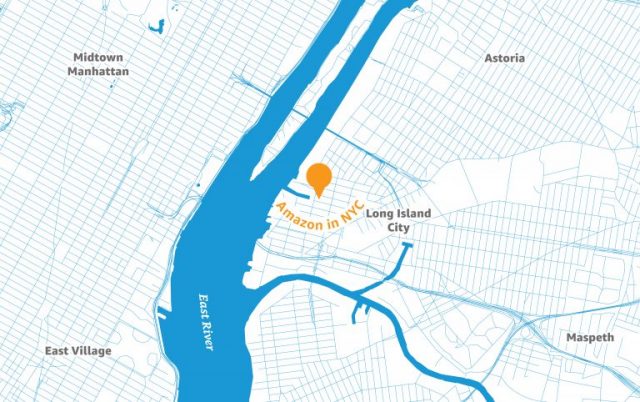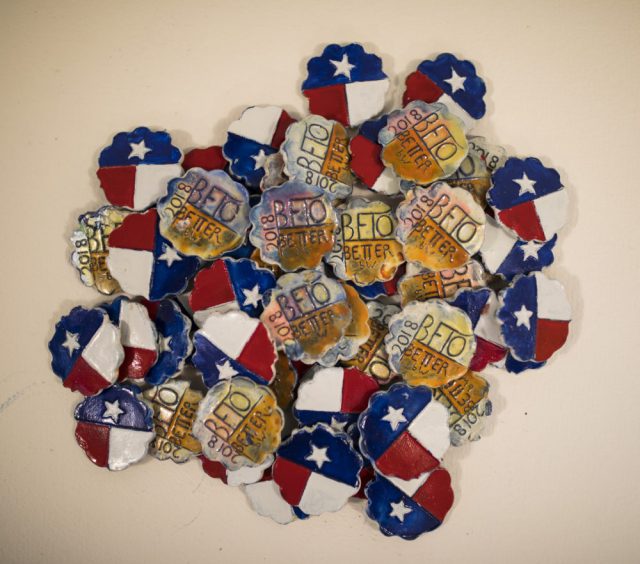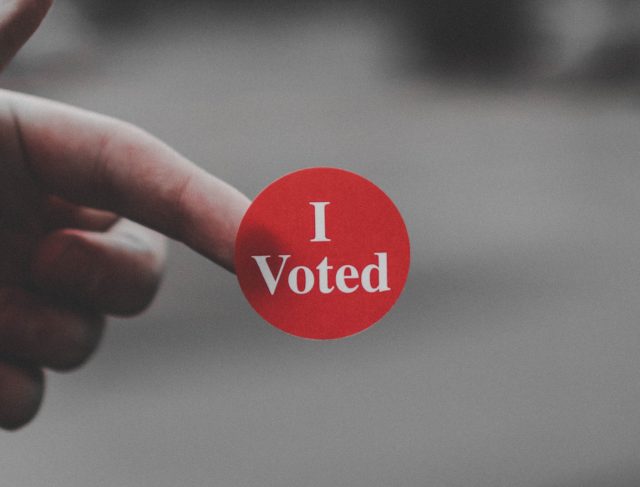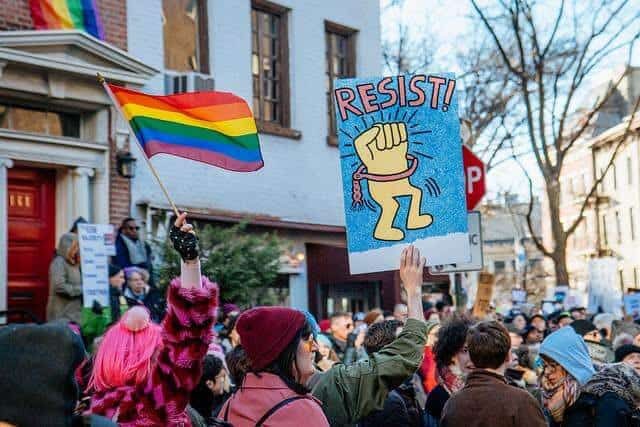
Ever been struck with despair mid-cackle during an episode of Veep when you’re reminded that our current Cheetoh-in-Chief is more narcissistic, uglier, and much less humorous than Selina Meyer? We’ve all been there. We feel it. Every. Single. Day. But, take heart, because there is finally something you can binge watch with your friends that won’t leave you on the couch sitting next to an empty vat of ice cream and wading in a pool of apathy: behold Resistance School. It’s pretty much the closest thing we’re going to get to a real life Dumbledore’s Army, and we need all the magic we can muster, so jump on this train.
Resistance School offers four free classes that teach practical skills for organizing and mobilizing to promote progressive (read: human) values like fairness, equality, and inclusivity. You know, those timeless and inspiring ideals that it seems like we shouldn’t have to march for, but here we are. You can stream the sessions online, and each one comes with a list of related readings and an activity to do afterwards. Here’s a breakdown of what you’ll learn:
________
- In the first class, Harvard professor Tim McCarthy challenges you to ask yourself what you really care about, and why? Because before you can become a meaningful part of any movement, you’ve got to know what you’re fighting for.
- In the second session, professional organizer Sara El-Amine explains the difference between mobilizing and organizing, and how to talk to people about issues in a way that will actually change minds and not just result in everyone from your hometown hiding you from their newsfeed (hint: talk less, listen more, share stories).
- Lifelong organizer Marshall Ganz teaches the third class on how to build your group to foster effective leadership and get shit done, beyond downing wine and complaining.
- Finally, the Bronx’s Assemblyman Michael Blake teaches you how to sustain your momentum for the long run, because it ain’t always easy being the fly in Team Trump’s fancy ointment, but somebody sure as hell has to do it.
We caught up with Shanoor Seervai, one of the eleven co-founders of the Resistance School, to talk about the impetus for forming the course, the staggering response so far, and the unique opportunity we have to rise up for what we believe.
________
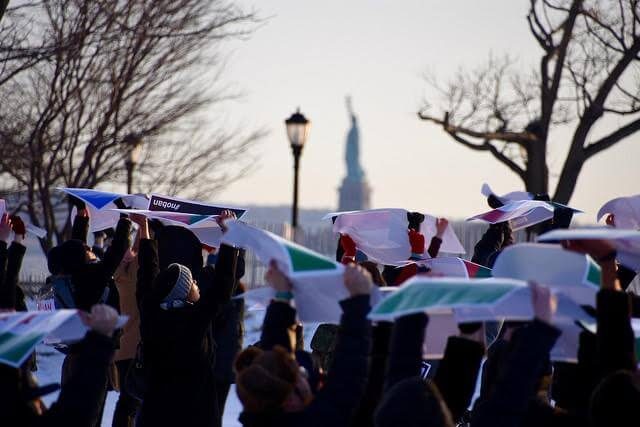
How did you all come up with the idea for the Resistance School?
The team of co-founders is eleven students at the [Harvard] Kennedy School, and we started meeting towards the end of January. We felt that there were so many incredible organizing efforts, so many people marching, signing petitions, calling their representatives, but our concern was how would we keep this momentum going for a long period of time? And in order to move from a defensive to a more offensive strategy, what were the tools that we and others needed? So our idea was that we would design the four sessions as something that groups could get together and do, because we were seeing in ourselves we were so much stronger and so much more productive when we were in this room brainstorming together, than when we were on our own.
How do you think Resistance School will help people who live in a liberal area like Brooklyn, where it can feel like everyone’s on the same page?
So I think one of the things that’s been incredible to observe in the past few months is that in exactly these communities where you think that people are preaching to the choir or maybe people feel like, oh there’s nothing to organize around, we’ve seen so many marches and efforts. I’m sure you’ve heard about the incredible work of Occupy Airports in New York around the Muslim ban for example, so we think that these skills are relevant to anyone who wants to organize regardless of which part of the country they’re living in. We find them relevant to ourselves because they’re really about sustained action. And I think that they’re also an opportunity for people to again, even in a liberal pocket like New York, to really figure out what can be done at the local level, because I mean if we’re realistic, we can of course effect change at the federal level and that’s important, but it’s also important to look closer to home at our communities, and I know that there are issues that people in Brooklyn want to and need to organize around that are very relevant to Brooklyn.
________
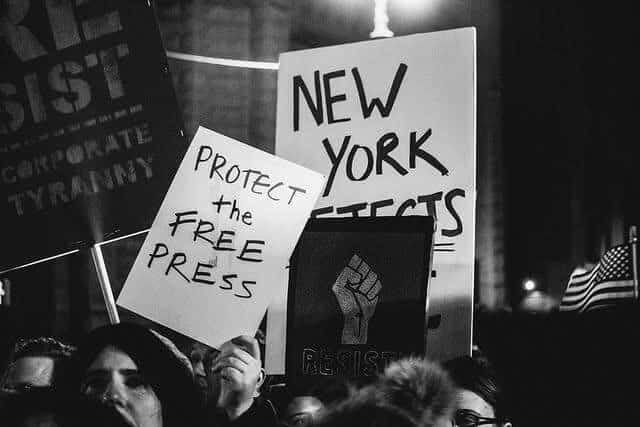
It’s pretty impressive that a group of eleven students has created something with a nationwide following in a few months. What advice do you have for other young people who feel passionately but may not know where to start?
Well, I would say that when we started Resistance School we thought that a couple of hundred of our friends and family would be interested in it. And we in our wildest dreams did not imagine that we would reach 175,000 people. Like even when I say that number I struggle to wrap my head around what that means. And so what I would say is, especially to young people, believe in yourselves – we haven’t seen enough to be cynical yet! If something moves you and you want to start something, believe in yourself and believe in those around you. Because the power of you is stronger and amplified with the power of your community.
What I would also say is don’t hesitate to ask for help. We asked for so much help from so many people. One of my mentors here at the Kennedy School put me in touch with one of his friends, who has calls with me while he walks his dog because he’s so busy, but he makes the effort to be on the phone with me and offer me advice. Draw on your community. I think the one thing that I’m learning and fortunate to be able to take advantage of is that people want to help young people. They want to give us advice. The older generation wants to see change, and we can work with them on that.
What would you say to people who feel like they’re too busy to fit activism or political engagement in their lives?
Well from my own experience this last month and from the experiences of the other co-founders of Resistance School, I can say that our time stretches to fill the things that we’re moved by. And I of course understand that people are very busy and have schedules that are far more rigid than my own [as a student]. But what I would say to people is that our communities are important; our democracy is important; we have something to fight for. This is a moment when they’re being called, and if they can find a way, however small, to fit some time into their schedules to respond to this call, to listen to their neighbors and their friends, to talk with people they might not agree with, to think about what they care about, then there’s just huge potential.
________
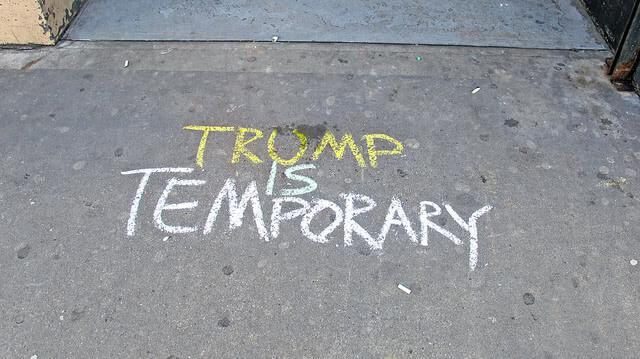
What drives the founders of the Resistance School?
What’s been the most inspiring and motivating to all of us in this incredibly busy time are the responses we’ve been receiving from people in every corner of the country from every walk of life. It’s just an indication to us that there is a need, there is a desire, and we need to, all of us together, nationally, need to come together, tap into this moment of civic engagement and advocate for the values that we care about. Again: inclusivity, equality, fairness – they are the principles or the bones on which this country was founded and the bones on which this country will survive and thrive.
What are the plans for the future of Resistance School?
We are refining and working on semester two. The last session [with Assemblyman Michael Blake] was incredibly powerful to me. It’s a good note to end part one on, because the thing to me and I know to a lot of the co-founders as well that we took from what he said, is that if you resist once, that doesn’t mean you have a resistance. You need to keep coming back, it’s not about doing it once. For us, that’s the very crux of why we started this. This is not about once, this is about the long haul, so we’re working on semester two, we’re in it for the long haul, and we hope that everyone else is too.
This interview has been condensed and edited.
Grab a few friends and check out semester one of Resistance School. You and your fellow Broketivists can stream any of the classes at any time, so don’t worry if you haven’t done the homework.
Leave a Reply

